Health Benefits of Hibiscus
Hibiscus isn’t just a pretty flower found on tropical islands; it’s a functional food with some excellent health benefits! The flowers are sold commercially for use in food, beverage or natural supplements. You can now find hibiscus in wine, fermented drinks, candy, jam, baked goods and tea! Brewed hibiscus tea is a deep ruby red colour and has a tart flavour similar to cranberry juice. It can be served hot or cold or used in recipes like our Calming Hibiscus Martini. Learn more about the evidence-based Health Benefits of Hibiscus Below.
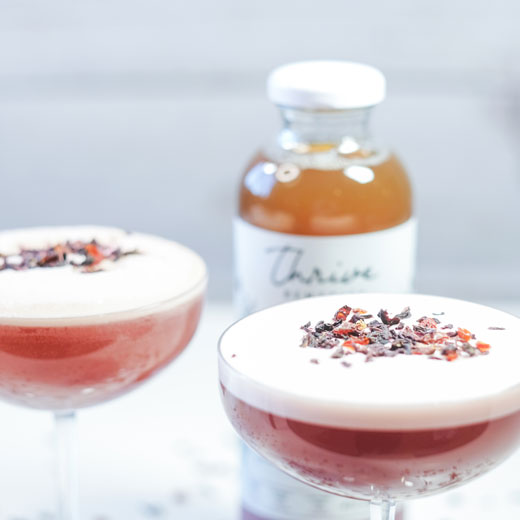
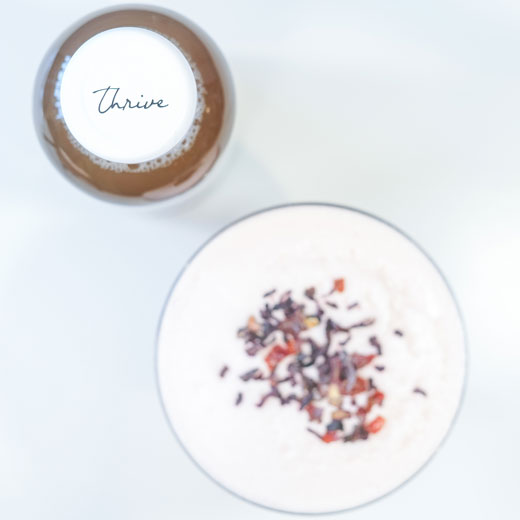
What is Hibiscus?
There are several hundred species of hibiscus. They typically grow in tropical climates like the Hawaiian Islands and the Philippines. Hibiscus Sabdariffa, the large red variety, is most commonly used in medicine, supplements and food and beverage. Hibiscus has been a part of different cultures around the world for centuries. It is believed to treat liver disease, cancer, constipation, heart disease, colds and more. Today, it is most well known for its ability to lower blood pressure and aid in weight loss. Hibiscus is available in powder, tincture, capsule, liquid and tea. It can be taken at any time of day for two to six weeks. The recommended dose varies based on the product. Always read and follow the label and consult with a licensed health care practitioner before beginning a new supplement routine. Hibiscus is not recommended for people taking blood pressure medication and should not be taken with Tylenol or related products.Health Benefits of Hibiscus
- Full of Vitamins, Antioxidants & Minerals
- Helps Improve Iron Deficiencies
- Lowers Blood Pressure
- Lowers Cholesterol
- Aids in Weight Loss
- Supports Liver Health
- Anti-bacterial & Anti-viral Properties
- Natural Diuretic
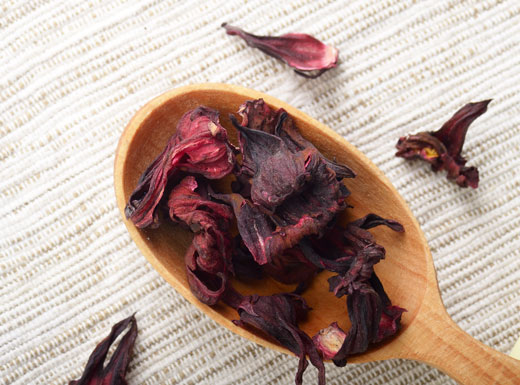
1. Full of Vitamins, Antioxidants & Minerals
Hibiscus is antioxidant-rich, meaning that it helps protect the cells in your body from damage. It’s also full of essential vitamins and minerals like vitamin C and iron. Vitamin C helps support a healthy immune system, promotes skin health and may even prevent or delay certain types of cancer. Vitamin C also improves iron absorption in your body. Iron is needed to support healthy growth and development, which leads to the following health benefit.
2. Helps Improve Iron Deficiencies
Iron may help with anaemia or iron deficiencies. Iron is an essential part of producing red blood cells and needed to keep the body healthy and functioning normally. Red blood cells carry oxygen from the lungs to all parts of the body. If you lack red blood cells, it could result in feeling tired, shortness of breath and affect brain function.3. Lowers Blood Pressure
Hibiscus keeps your heart healthy. In one study, Hibiscus lowered blood pressure in pre and mildly hypertensive adults. Your blood pressure changes throughout the day based on the activities you are doing. Hypertension is when you constantly have high blood pressure, leading to health risks such as heart attack, heart disease and stroke. Note, hibiscus does not mix well with blood pressure medication. Make sure to speak to your doctor before incorporating hibiscus into your diet.
4. Lowers Cholesterol
Hibiscus tea can reduce the amount of LDL “bad” cholesterol and triglycerides in your bloodstream. Both can contribute to fatty build-ups in arteries, leading to heart attack, stroke, and artery disease. It also increases HDL “good” cholesterol levels, which helps eliminate some of the bad cholesterol by moving it to the liver, where it is then broken down and removed from the body.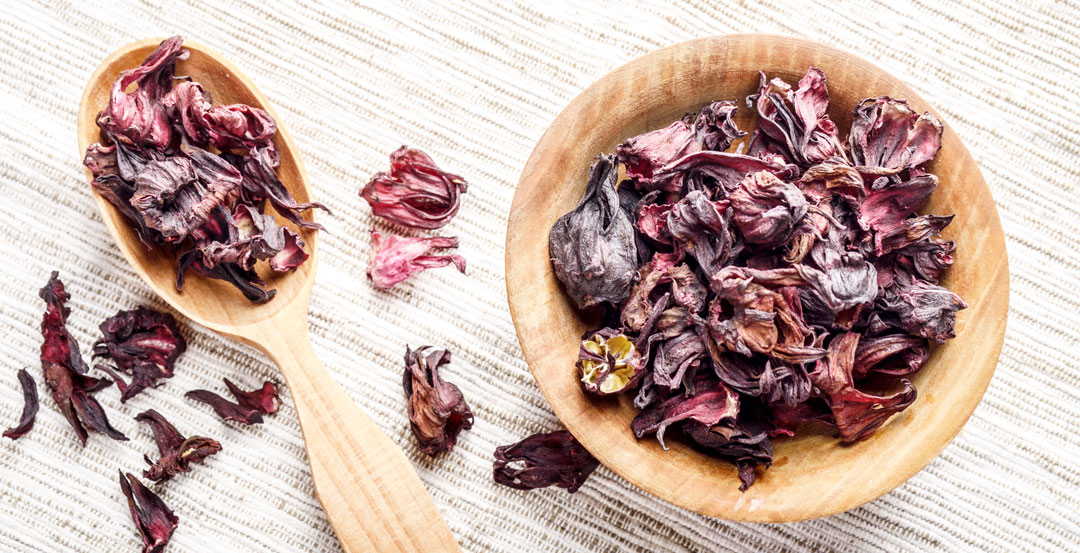
5. Aids in Weight Loss
Hibiscus tea alone won’t help you lose weight, but it may give you an extra boost. It is naturally low in calories, making it an excellent alternative to juices or pop, if you want something with a little more flavour than water. One study suggests that hibiscus extract may be able to aid in weight loss and prevent obesity. Participants were given the extract for a 12 week period. Over that time, their metabolism improved, and they saw a reduction in overall body fat.
6. Supports Liver Health
Toxins, medicine and alcohol can damage your liver over time if not consumed in moderation. Your liver plays a significant role in removing these harmful substances from your body. It also supports metabolic function and the breakdown of fats. Hibiscus promotes liver health by reducing liver damage, increasing the liver’s detoxifying enzymes, and improving fatty liver.7. Anti-bacterial & Anti-viral Properties
Hibiscus can help fight several bacteria and virus strains. One study found that hibiscus may be able to stop the growth of E.coli. A type of bacteria that lives in the intestine that can make you sick with symptoms like diarrhoea, cramps, bloating and vomiting. E.coli can be resistant to some antibiotics, which could make hibiscus really valuable in those situations.8. Natural Diuretic
Hibiscus is a natural diuretic meaning it increases urine flow, removing excess salt, water, poisons and metabolic waste from the body. Diuretics can also aid in digestion, reduce blood pressure and relieve bloating, constipation and shortness of breath. Hibiscus helps keep you hydrated and is a little more flavourful than water if you’re trying to get your eight glasses in a day.References:
- Wikipedia
- Nutrition Facts
- Antioxidant and Detoxification Effects of Hibiscus
- Hibiscus Lowers Blood Pressure
- Effects on Obesity
- Hypertension
- Vitamin C Information
- Iron Information
- Vitamin C and Iron Absorption
- Study on Hibiscus Supplementation in Northern Ghana
- Effects on Hypertension
- Effect of Hibiscus on Metabolic Syndrome
- Effects of Hibiscus on Lipids
- Obesity and Hibiscus
- Anti-microbial Effects
- Hibiscus Review
- Hibiscus Effects on UTI
- Hibiscus Effects on E.coli
- Hibiscus for Anemia.
*** Disclaimer: The content on this website (Thrive Remedies) is for informational and educational purposes only and should not be taken as medical advice. It is not intended or suitable in place of advice from your health care practitioner or licensed physician. The information and products on this website should not be used for diagnosing, treating, curing or preventing a health problem, you should always consult a health care provider or licensed physician for advice. ***
You May Also Like…
7 Health Benefits of Lavender
Stress, anxiety, disrupted sleep, and mood significantly impact your overall health and well-being. They can creep in...
Health Benefits of Turmeric
Turmeric is one of the fastest-growing herbs on the market. You can now find it in a variety of food and beverage...
Calming Vegan Pancakes
When it comes to the weekends, pancakes are a breakfast food staple. Perfect for switching things up from the boring...
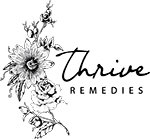

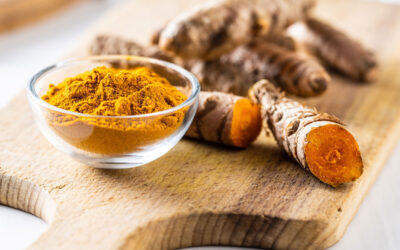

0 Comments